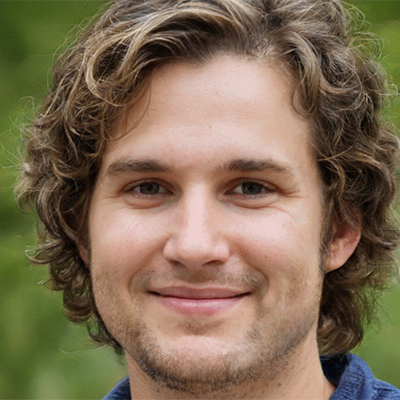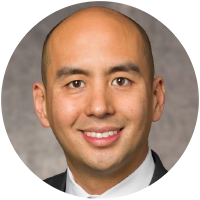
Stanley Clark is a community development volunteer and writer who cared for his aunt with cancer. He has worked on several commercials, events, and campaigns. Recently, he has moved to writing about health and wellness. You can follow him on Twitter.
When my Aunt Alice sat my mom and me down for a family meeting last year, I had no clue what she was about to say. I certainly had no idea that the news she was about to share would be devastating. When we were all together in the living room, Aunt Alice looked at my mom and me and said, "I have advanced breast cancer."
Aunt Alice is my mom's half-sister. She had been living with my family since I was 12, and she helped my mom raise me. She was diagnosed in 2019, but she had kept it to herself until now. She said she didn't want to bother us and that she'd already set up an appointment to discuss focusing on hospice care with the hospital. But the idea of leaving Aunt Alice alone in a facility with strangers scared me. Does she even want that? I thought to myself. We could take care of her at home.
At the time, the idea of hospice care was so foreign to me. We had never had to deal with cancer in our family before, so this was new territory for us. Aunt Alice explained that the type of hospice care offered to her would provide specialized care for people like her who were living with a severe illness. The program would include the best therapeutic aids for her pain, anxiety, and depression. Luckily, my mom and I would never be alone in caring for Aunt Alice. A team of medical specialists would be available to take care of her needs and to improve her quality of life and ours.
Becoming involved with my aunt’s care plan
After learning more about hospice care, I talked to the medical specialist who was planning Aunt Alice’s hospice care. He helped me through the process and said I could be as involved with the plan as I wanted to be. In fact, he highly encouraged it. He informed me that I could help with the decision-making about my aunt's therapy plans, financial concerns, and caregiving plans. I was relieved and started looking at the possible options.
As a family, we decided to do Aunt Alice’s hospice care at home. We went over the treatments, care plans, financial information, and daily activities recommended for her. We chose what she most preferred and what would make her happiest. We would also have help. We had a nurse who would come to our house early in the morning and go home at night, and the nurse taught me how to prepare my aunt's medications and oriented me on her treatments. It was good to have a team of professionals working hard to make sure she was comfortable.
But even with professional help, it still wasn't easy for my family. I sometimes missed work and had to give up some quality time for myself to ensure my aunt was receiving the care she needed. Yet at the end of the day, those sacrifices were all worth it. Being involved made me learn about some of the inner strengths and abilities that I didn’t even know I had, and caring for her gave me a greater sense of purpose. As I became good at caregiving, I was eager to continue in the role for as long as was needed. My Aunt Alice’s care also drew my family closer together and opened doors to new relationships.
After settling on her hospice care plan, I noticed that Aunt Alice felt relieved and less anxious about her illness. It made me happy that somehow she had gained confidence because she wasn't alone.
How hospice care helps people with cancer
Thanks to Aunt Alice's hospice care specialists, she was able to take medications to help relieve side effects like pain, fatigue, loss of appetite, and nausea and vomiting. Her hospice care program also included emotional and spiritual support. Dealing with cancer takes a tremendous toll on the spirit, not just for the person with cancer but for their family and loved ones, too. Through the help of the hospice care team, we were able to keep depression, fear, and anxiety at bay. The specialists also helped us arrange a small group session with cancer survivors to inspire Aunt Alice and keep her hopeful. We were grateful to have the support.
Through it all, Aunt Alice remained positive. The time she spent with her small group made her feel like she wasn't alone. I know, too, that choosing to do her hospice care program at home was the best decision for her and our family. Caregiving is challenging, yes, especially if you don't have a medical background, but we wouldn't have done it any other way.

“For my patients with advanced cancer that are focusing on quality of life rather than more treatment, hospice is a wonderful option that provides another layer of support for the patient and family to help them make the most out of each day.” – Richard T. Lee, MD, associate professor in the Division of Hematology and Oncology and the Helen Moss Foundation-Schoff Family Professor of Integrative Oncology at Case Western Reserve University School of Medicine and Cancer.Net Associate Editor for Palliative Care
Why I’m glad I chose to be involved with my aunt’s hospice care
I'm so grateful we decided to be part of Aunt Alice’s hospice care. It wasn't an easy decision, but I'm happy we took the time to study the care plans and become involved. Her care program allowed us to spend the precious time she had left in meaningful ways. Being able to manage her pain and fatigue freed her up to enjoy our company and engage in long conversations. We spent most of our mornings on the porch. I read poems to her, and she reminisced about her and my mom's childhood days. She often mentioned how she would love to spend a day on the beach one last time.
Aunt Alice passed in August 2020. I'm so glad that a few days before that, Mom and I were able to surprise her with a day on the beach, just like she wanted. Mom prepared a picnic basket, and I helped her pick out a cute sundress, along with the biggest hat I could find.
If you are caring for a loved one who is considering hospice care, their doctors and other medical specialists can answer your questions and tell you about your options. For my family, we found it was best to be honest about how we wanted it to go. We asked questions about the advantages and risks of the available treatments before the care plan started. We felt it was best to be well-informed about what could happen during Aunt Alice’s treatment plan. The medical team also asked us questions, including about the medications she was taking, the treatments she was planning to receive, the effects of the illness on her and our family, and what our family’s expectations were. The health care team then incorporated these answers into a hospice care plan to make sure all of Aunt Alice’s needs were met.
If you're caring for a loved one with cancer who will be receiving hospice care, you may participate in aspects of that care like taking your loved one to treatments, support group sessions, and symptom management activities. Through it all, my advice would be to cherish every moment you have with your loved one, even during the most difficult times. I’ve learned that being in the moment, no matter how hard, is the best gift you can give your loved one.
The author has no relevant relationships to disclose.
